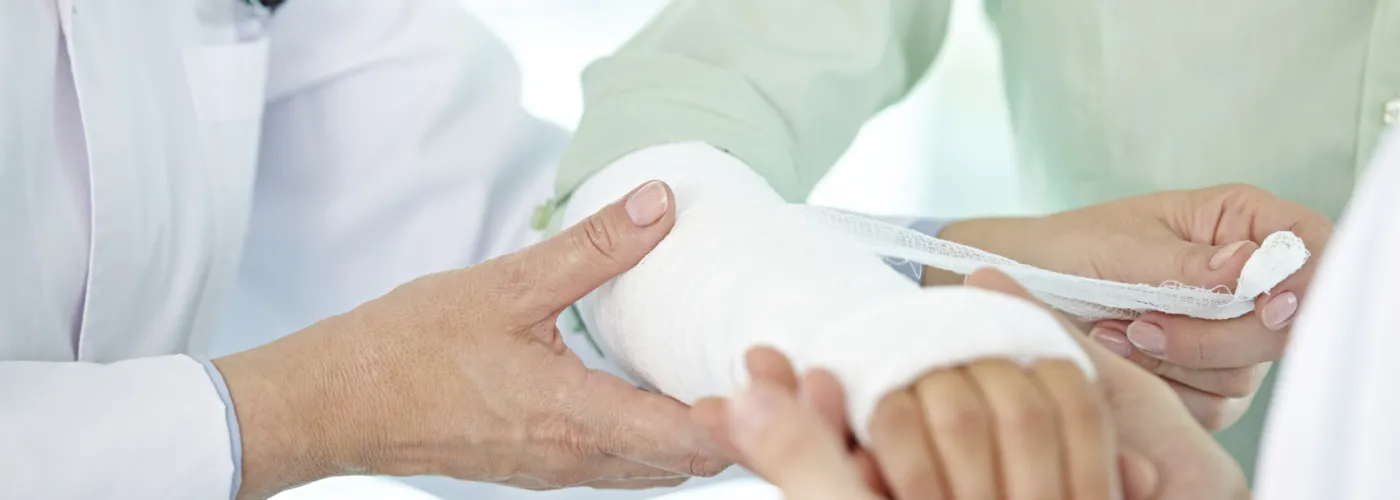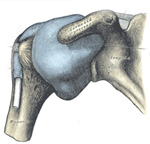
Shoulder Pain

Often our patients come into our office complaining of Rotator Cuff Tears, when in fact, very few have a tear. Besides rotator cuff tears, there are many other causes of shoulder pain, including:
Adhesive Capsulitis (frozen shoulder)
Subacromial Bursitis
Supraspinatus Tendonitis
Glenohumeral Instability
Chondrocalcinosis
Osteoarthritis
Gout
Lyme's disease-associated Arthritis
Bicipital Tendonitis
Ganglion cyst
For the correct diagnosis, orthopedic doctors need to determine the cause of the injury and pain.
Determining the Cause of Shoulder Pain
An orthopedic specialist can help to determine the root cause of your shoulder pain. There are several symptoms they will evaluate to assist in identifying the proper diagnosis. Symptoms, injuries, disease, and age can all be factors to consider. The following is a summary of diagnoses and possible causes of why you may be experiencing shoulder pain.
Overuse |
|
Forceful Trauma |
|
Insidious Onset |
|
Chronic |
|
Younger Age |
|
Older Age |
|
How Do Orthopaedic Doctors Diagnose Shoulder Pain?
The art of diagnosing shoulder problems is to relate the two above with a good history from the patient and a comprehensive shoulder exam.
Believe it or not, over 50 shoulder exam tests can be done by the examining physician alone, without the use of x-rays, MRIs, or arthrograms.
The latter tests may be used to confirm a clinical suspicion or, in complex cases, to aid in the diagnosis. Still, a patient's history of injury/pain and an excellent shoulder-directed physical examination will usually suffice in making a diagnosis and treatment plan.
The Approach to Treatment
Many of these problems are approached in a non-operative manner with medications, rest, ice, and physical therapy supplemented with cortisone injections on occasion.
If an operation is needed, most of these conditions can be treated by arthroscopic (scope) techniques, with limited incisions, and usually done same-day surgery. Initiating early treatment for shoulder problems is often the best remedial course. If you recognize these symptoms, you should make a prompt appointment to evaluate them further by your primary care physician or an orthopaedic doctor.
Are you Experiencing Shoulder Pain? It's time to consider finding the best Orthopaedic Specialist
If you are experiencing shoulder pain, it's time to have an assessment with an orthopaedic specialist. You may wonder who is the best for orthopedics near me?
At Pinnacle Orthopaedics, we utilize the most up-to-date technologies and surgical techniques to provide our patients with the highest quality orthopedic care. Our Fellowship Trained Specialists tackle issues from acute injuries to chronic problems and diagnose musculoskeletal disorders including the hand, elbow, shoulder, foot and ankle, trauma and fractures, joint replacement and reconstruction, sports medicine and many more.
Pinnacle Orthopaedics is proud to have been voted "best orthopedic group," "Best Physical Therapy Group," and the "Best Orthopedic Specialist- Dr. Brandon Burris in Cobb County.
We have several locations for convenience for every patient we serve:
We hope to address your shoulder pain with the proper diagnosis and treatment plan so you can have a successful recovery.
The material contained on this site is for informational purposes only and DOES NOT CONSTITUTE THE PROVIDING OF MEDICAL ADVICE, and is not intended to be a substitute for independent professional medical judgment, advice, diagnosis, or treatment. Always seek the advice of your physician or other qualified healthcare providers with any questions or concerns you may have regarding your health.